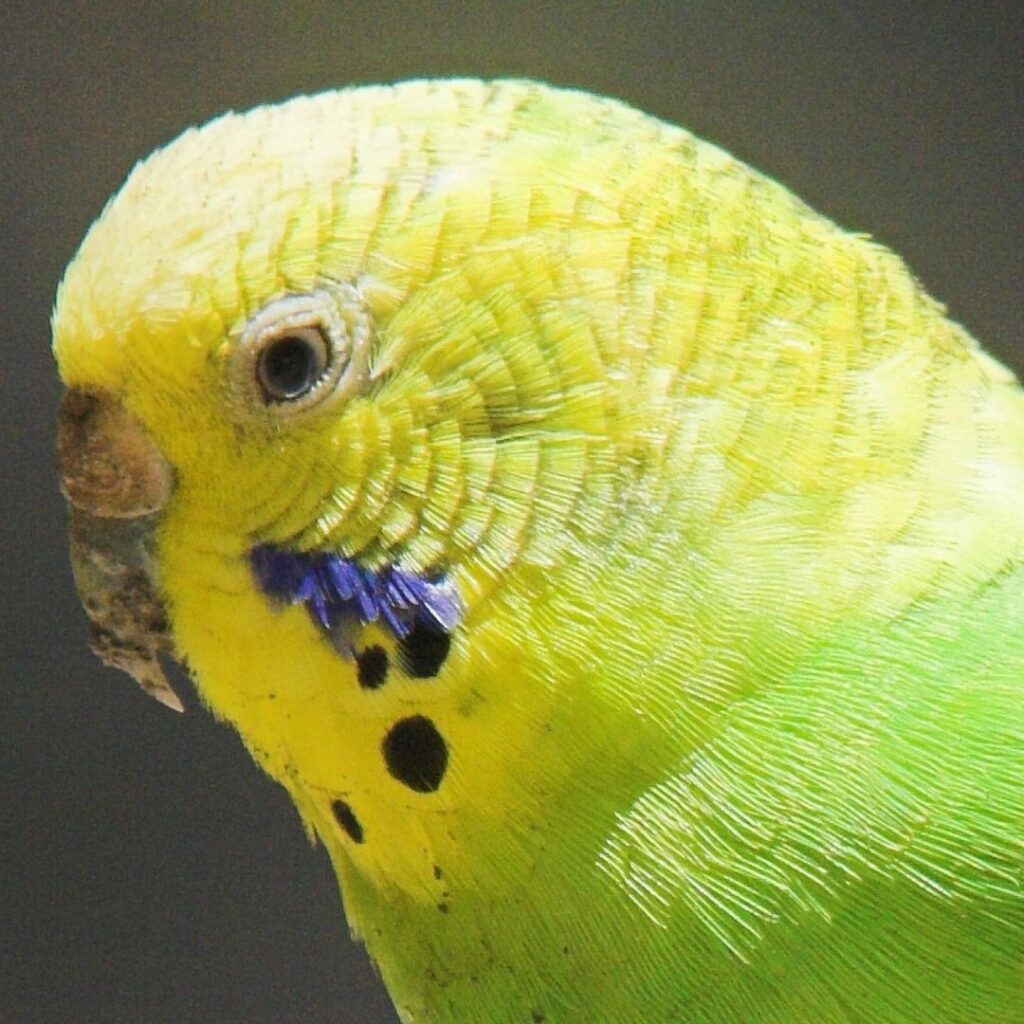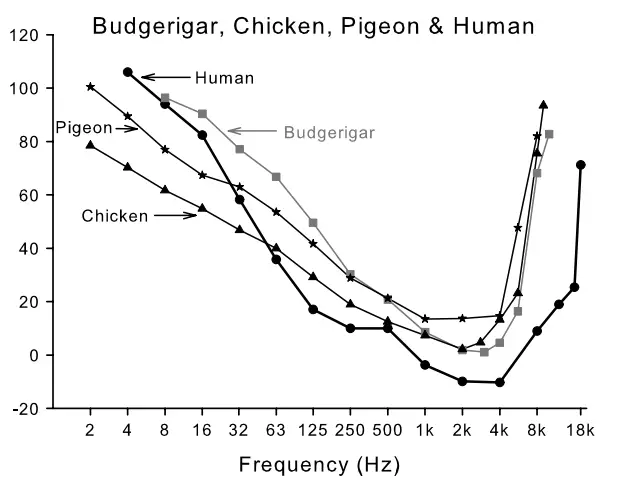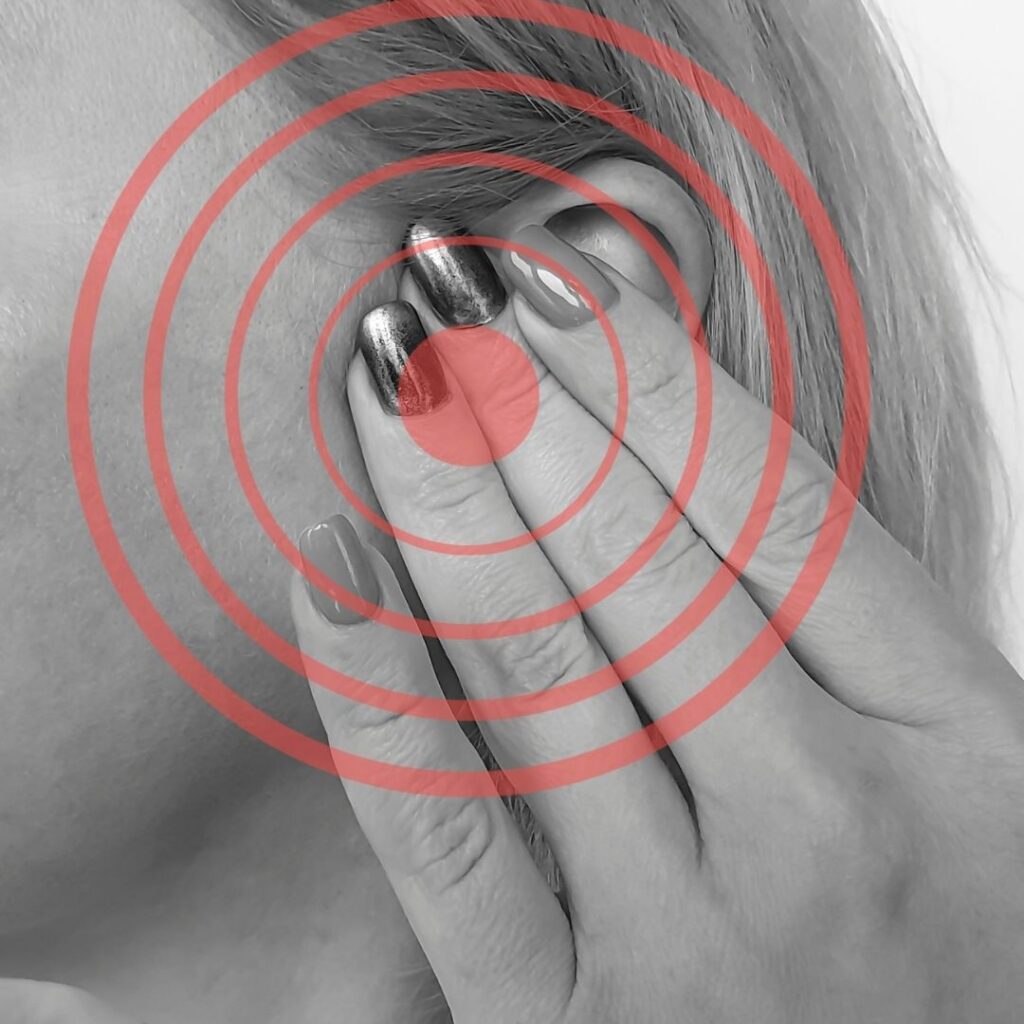After observing your parakeet for some time and noticing how quickly it responds to certain sounds. You might be wondering do parakeets have ears? Your pet parakeet is so sensitive to even the slightest tap, and when you play parakeet sounds on Youtube, he almost immediately starts to chat back. There is only one thing – if parakeets have ears, where on earth are they?
To answer your question, yes, parakeets do have ears. They are not like human ears, though! Your parakeet's ears are hidden behind the feathers on their head. These tiny ear holes that you didn't even know existed can be found by looking for two small patches, one on each side of the parakeet's beak.

Your Parakeet's Hearing Ability
Do you remember when I said earlier that parakeets are sensitive to sound? It is because it relies on sound to safely navigate its surroundings.
Surviving As A Prey Animal
Parakeets are prey animals, which means that they are hunted by other animals.

They need to be able to listen out for any danger coming their way.
Parakeets can hear and identify the sounds of other animals moving in their environment from a far distance away.
Being sensitive to sound means that they can hear the slightest noises and sound waves. However, a parakeet's hearing is not as sensitive to lower frequencies in the way that human ears are.
Parakeet Hearing Frequency – How High Can Parakeets Hear?
Although parakeets can hear roughly the same sounds as humans, their frequency sensitivity is different. According to this article about Budgerigar (parakeet) Audiogram, a parakeet's hearing frequency range is between 8 Hz to 10 kHz.
This page on Wikipedia has also stated that the average bird is most sensitive to sound ranging between 1 kHz to 4 kHz. In comparison, a human's hearing frequency range is from 20 Hz to 20000 Hz.
This means that despite having sensitive ears, a parakeet cannot hear sounds that humans can't.

Can A Parakeet Be Deaf?
Unlike humans, it's unlikely for a parakeet to be deaf. Hearing is an adaptive trait that birds and other animals need for survival.

A deaf bird would be at a great disadvantage in the wild. They couldn't hear anything and, if they somehow survived to adulthood, when it comes to breeding, it is doubtful that they could successfully mate with another bird because of their inability to sing or respond acoustically when an invitation was sent out by other birds.
A male wouldn't have been able to develop territorial songs well enough due to his lack of hearing abilities, while females who were unable also wouldn't have had any way of responding back as there's no way she'd know someone wanted her attention.
Can A Parakeet Go Deaf?
It is possible for a bird to lose its ability to hear due to something such as loud music, a loud bang, or trauma. However, the damaged sensory hair cells a bird has in its inner ear simply grow back. These cells are critical for helping the bird to detect sound, and birds have adapted to be able to grow them back.
How Noise Affects Your Parakeet
Most parakeets, once they are used to their environment and noises within it, become comfortable with these noises. However, some parakeets may react negatively to some sounds and become stressed out by them.
As an owner, you must be aware of the ways in which you can help your parakeet to cope with noise.
The best way is by not adding too many things that may be startling for a bird into its environment, such as new pets. Do understand that if there are other animals around the house, it could cause conflicts and distress within your pet's environment.
How You Can Help Your Parakeet's Hearing
There are a few ways that you can help your parakeet's hearing.
- Do not put your parakeet's cage in an environment with excessive noise, such as one filled with loud music or other animals.
- Try to keep the sound levels in their environment comfortable and try to avoid sudden noises.
- Do not expose them to loud environments for long periods.
- Do remember that they can't hear in the same way as humans and may be startled by sounds we do not even register or notice.
If You Are Worried About Your Parakeets Hearing
If you are worried about your parakeet's hearing, you can consider getting your pet a vet assessment. You would need to discuss the problem with them and see if they have any ideas on how to best help your parakeet cope with their hearing sensitivity levels or whether there may be an underlying issue that needs medical attention.
The vet will take a look at your aviary environment as well as the noises in it and create a plan or best advise you on how to handle the issue.
If There Is Blood Coming From Your Birds Ears
It is never normal for blood to come out of your parakeet's ears. A bleeding ear is a clear indication that your parakeet has an injury or health issue and needs to be taken in for examination.
If blood is coming from the ears, contact your veterinarian immediately or take your pet to an emergency veterinary clinic so that they can get help as soon as possible.
Do not wait until tomorrow if you think there may be some kind of underlying problem with their ear. In some cases, they may advise you what to do, so be sure to have your parakeet first aid kit stocked up and accessible.
If There Is No Blood But Your Bird Seems Disinterested In Your Attempts To Bond With It…
This happens. Your parakeet might not be responsive to you, and this doesn't mean that your parakeet hates you; she might just be stressed, not getting enough sleep, in need of a friend (of her own species), or hungry.
Another (unofficial) way of checking your bird's hearing, and my favorite, which I have already mentioned here. Play one of the many “parakeet singing sounds for lonely parakeets” videos on YouTube. I guarantee your concerns will be settled immediately as your parakeets start chit-chatting with the birds on your screen!
Conclusion
Keeping your parakeet healthy and happy is a priority. If you have any concerns about your parakeet's hearing and still feel unsettled, first, double-check the environment. Make sure you have done everything to ensure he is safe and not being startled by any sounds.
Second, if he seems listless or afraid, then it could be worth assessing whether there has been an injury such as trauma from another animal attack where they may have lost some of their hearing on one side (or both).
If this is the case, see an avian vet as soon as possible.
References https://www.wildlife-sound.org/resources/articles/44-resources/articles/110-hearing-in-birds https://www.utoledo.edu/al/psychology/pdfs/comphearsound/Budgerigar_audiogram_J_Comp_Physiol_A_2016.pdf https://en.wikipedia.org/wiki/Hearing_range#Humans https://scopeblog.stanford.edu/2018/06/06/birds-never-go-deaf-why-do-humans/ https://www.allaboutbirds.org/news/do-bird-songs-have-frequencies-higher-than-humans-can-hear/








